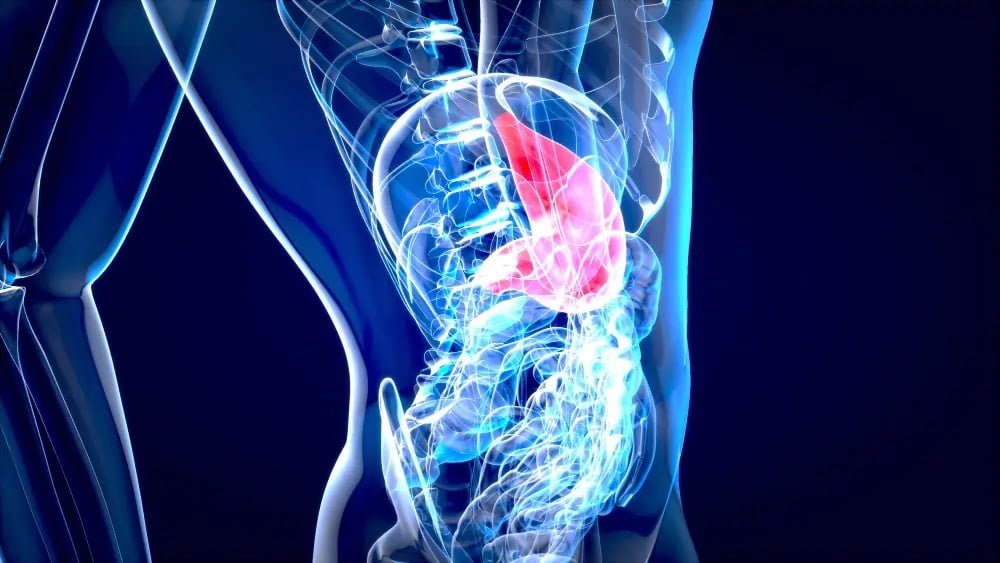
What is Ischemic Heart Disease?
Ischemic heart disease is also known as coronary artery disease, and it happens to be the world’s leading cause of death. Undeniably, the effects of ischemic heart disease are far-reaching, but most do not really know that with lifestyle changes and other right treatment modalities, ischemic heart disease can be both managed and improved. This article outlines 7 practical, concise, and actionable tips that can help in effectively treating ischemic heart disease through simple lifestyle changes a man on the street can easily embrace.
1. Have a Healthy Diet
The food you eat contributes to managing ischemic heart disease. A heart-healthy diet is one of the best approaches for slowing down or even reversing the progression of heart diseases. Focus on the following:
- Limit saturated fats and trans fats: These increase your bad cholesterol, and LDL, and contribute to the formation of plaque in arteries. Healthy fats are found in sources such as olive oil, avocados, and nuts.
- Prioritize whole grains, fruits, and vegetables: These foods are high in fiber and help to keep cholesterol levels in check and arteries free flowing. Among these, berries, green leafy vegetables, and whole grains such as oats and quinoa have specific health benefits.
- Decrease salt: Eating too much salt leads to hypertension that worsens ischemic heart disease. Aim to have less than 1,500 milligrams of sodium a day.
Actionable recommendations: First, replace processed and packaged foods with fresh foods. Preparing your own food gives you greater control over how much fat, sodium, and sugar goes into your mouth.
2. Be Active: Exercise regularly
Regular exercises build up heart muscles, reduce blood pressure, and promote better blood circulation-all of which are critical in controlling ischemic heart disease.
- Strive for at least 30-60 minutes of moderate exercise most days of the week: Brisk walking, cycling, swimming, or even dancing might improve a heart. If you’re just starting, you can spread this time into various smaller sessions throughout the day.
- Incorporate strength training twice a week: Muscle-building helps improve body composition in general and this makes your heart function better.
Actionable steps: For a beginner, start with slow activities such as 10-minute’ walks and increase the pace and duration based on built-up stamina.
3. Maintain a Healthy Weight
It is very important to maintain your weight because excess weight puts an increased load on the heart, leading to high blood pressure and cholesterol levels, two risk factors that can worsen ischemic heart disease.
- Calculate your BMI (Body Mass Index): So you are aware of whether you have a healthy weight. An ideal BMI falls between 18.5 and 24.9.
- Set achievable weight loss objectives: The effective difference of losing between 5-10% of body weight can make an effective difference in terms of heart health, lowering blood pressure, and cholesterol levels.
Practical activities: Achieve sustainable weight loss with exercise alongside careful eating. Avoid fad diets and instead aim for a slow but constant loss of around 1-2 pounds a week.
4. Quit Smoking and Avoid Exposure to Secondhand Smoke
Smoking is one of the most critical risk factors for ischemic heart disease and ranks among the most preventable. Tobacco damages your heart and blood vessels, and it encourages the building up of plaques in arteries and the ensuing blockage.
- If you smoke, quitting has the greatest impact of all: Quitting smoking reduces your risk of heart disease by 50 percent within just a year.
- Avoid secondhand smoke: Even non-smokers are more likely to get exposed when they smoke frequently. Ask the person you live with to quit smoking or establish smoke-free areas.
Active measures: Consult quit-smoking programs, counseling, and nicotine replacement products such as patches or gum. The secret to success is persistence—one will quit if that method does not work.
5. Controlling Stress and Mental State
Chronic stress often leads to life-threatening conditions like high blood pressure and inflammation. In some instances, it becomes an unhealthy behavior itself, such as overeating or smoking. It can directly affect your heart by increasing your heart rate and constricting the arteries, leading to dangerous conditions from ischemic heart disease.
- Relaxation is a necessity in daily life through deep breathing, meditation, or yoga.
- Seek a professional if you are experiencing years of stress, depression, or anxiety. Counseling and therapy can assist you in working on these emotions healthily, which will, in turn, benefit your heart health.
Physical activities: Devote 10-15 minutes of your day to mindfulness or relaxation. Even brief periods of relieving stress could contribute to improving one’s overall heart health.
6. Keep Track of Blood Pressure and Cholesterol

High blood pressure and cholesterol are major contributing factors to the development of ischemic heart disease. It is important to combat these risks to prevent further heart damage.
- Keep tabs on your blood pressure and levels of cholesterol: Maintain your blood pressure at a reading below 120/80 mmHg, and ensure that the LDL cholesterol level is kept below 100 mg/dL.
- If it is necessary, take the prescribed drugs: If lifestyle changes are not helpful, your physician can prescribe medications to manage blood pressure and cholesterol.
Practical actions: Get your blood pressure checked at least at six monthly intervals. In case you are medicated, be cautious to listen to the prescription instructions clearly and do not miss a single dose.
7. Comply with the doctor’s treatment plan and seek follow-ups
Good control of ischemic heart disease requires long-term continuity of medical care and close monitoring. Be consistent with your follow-ups to monitor the status of your heart. This might be with treatments.
- Follow prescribed medications: At many times, it is statins for low cholesterol levels or blood thinners for prevention of clots which would be included in the medication. Continuous medication is very important to control ischemic heart disease.
- Go for regular check-ups: This will enable your healthcare provider to monitor your progress, alter drugs should the need arise, and catch complications early.
Practical steps: Be reminded to take your medications and go to your appointments. Use a pillbox for organization and keep track of your symptoms so you can discuss them with your healthcare provider.
Closing Thoughts
Ischemic heart disease is a serious condition, but with forward planning, you can care for your heart and even improve its health. You can do this by taking a diet being physically active, managing stress, or any other advice given by your doctor. After all, every little change makes big changes. Take control today, and you will be on your way to living a longer life.



 Afrikaans
Afrikaans Albanian
Albanian Amharic
Amharic Arabic
Arabic Armenian
Armenian Azerbaijani
Azerbaijani Basque
Basque Belarusian
Belarusian Bengali
Bengali Bosnian
Bosnian Bulgarian
Bulgarian Catalan
Catalan Cebuano
Cebuano Chichewa
Chichewa Chinese (Simplified)
Chinese (Simplified) Chinese (Traditional)
Chinese (Traditional) Corsican
Corsican Croatian
Croatian Czech
Czech Danish
Danish Dutch
Dutch English
English Esperanto
Esperanto Estonian
Estonian Filipino
Filipino Finnish
Finnish French
French Frisian
Frisian Galician
Galician Georgian
Georgian German
German Greek
Greek Gujarati
Gujarati Haitian Creole
Haitian Creole Hausa
Hausa Hawaiian
Hawaiian Hebrew
Hebrew Hindi
Hindi Hmong
Hmong Hungarian
Hungarian Icelandic
Icelandic Igbo
Igbo Indonesian
Indonesian Irish
Irish Italian
Italian Japanese
Japanese Javanese
Javanese Kannada
Kannada Kazakh
Kazakh Khmer
Khmer Korean
Korean Kurdish (Kurmanji)
Kurdish (Kurmanji) Kyrgyz
Kyrgyz Lao
Lao Latin
Latin Latvian
Latvian Lithuanian
Lithuanian Luxembourgish
Luxembourgish Macedonian
Macedonian Malagasy
Malagasy Malay
Malay Malayalam
Malayalam Maltese
Maltese Maori
Maori Marathi
Marathi Mongolian
Mongolian Myanmar (Burmese)
Myanmar (Burmese) Nepali
Nepali Norwegian
Norwegian Pashto
Pashto Persian
Persian Polish
Polish Portuguese
Portuguese Punjabi
Punjabi Romanian
Romanian Russian
Russian Samoan
Samoan Scottish Gaelic
Scottish Gaelic Serbian
Serbian Sesotho
Sesotho Shona
Shona Sindhi
Sindhi Sinhala
Sinhala Slovak
Slovak Slovenian
Slovenian Somali
Somali Spanish
Spanish Sundanese
Sundanese Swahili
Swahili Swedish
Swedish Tajik
Tajik Tamil
Tamil Telugu
Telugu Thai
Thai Turkish
Turkish Ukrainian
Ukrainian Urdu
Urdu Uzbek
Uzbek Vietnamese
Vietnamese Welsh
Welsh Xhosa
Xhosa Yiddish
Yiddish Yoruba
Yoruba Zulu
Zulu